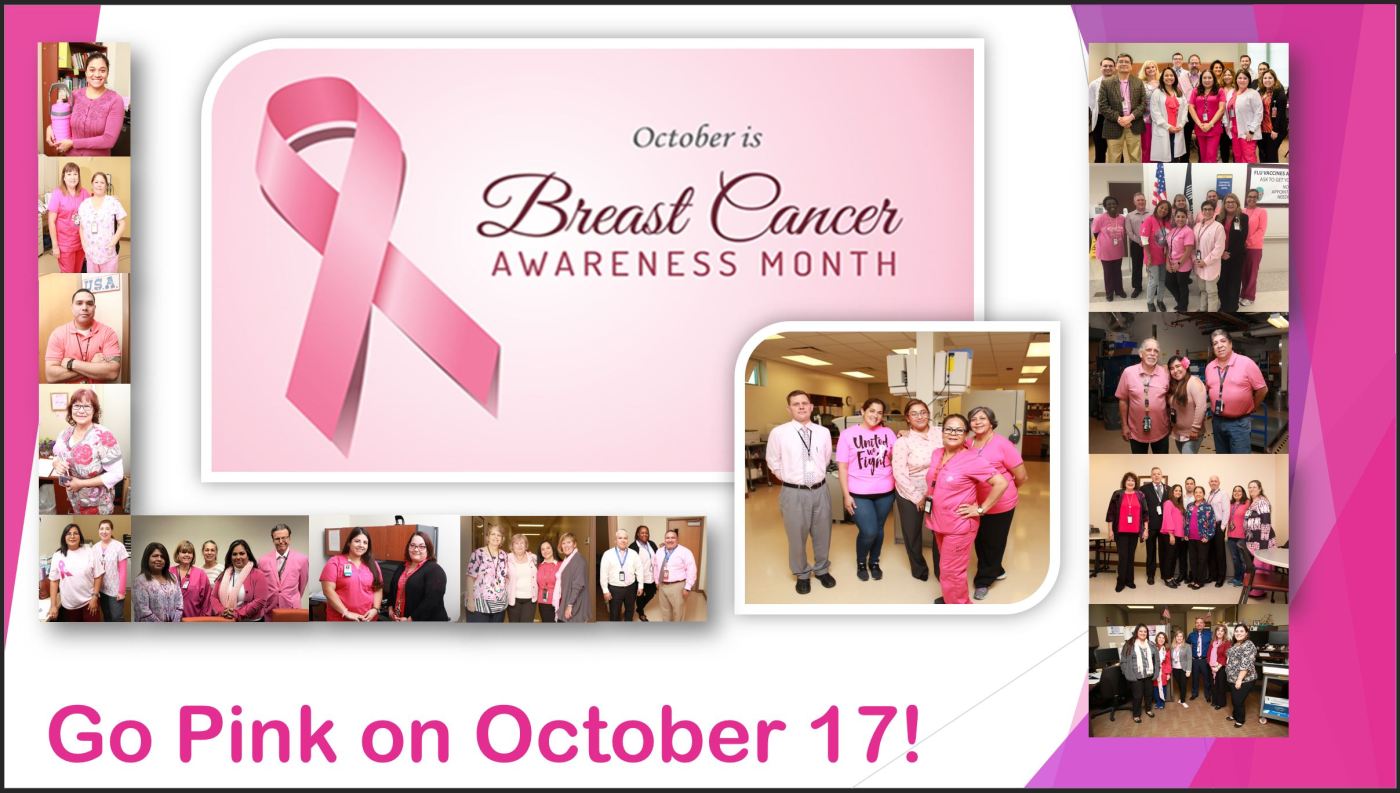HARLINGEN, Texas — October is Breast Cancer Awareness Month and VA employees, interns and volunteers were encouraged to wear pink on October 17 to support both females and males who have experienced breast cancer.
Breast Cancer Awareness Month, a worldwide annual campaign involving thousands of organizations, to highlight the importance of breast cancer awareness, education and research.
“It feels wonderful to see so many people wear pink to show their support for breast cancer awareness because it a great way to remind people to get that important breast exam that can catch the cancer in its early stage and save their life,” said Martha Aguilar, a VA medical support assistant, who proudly displayed her pink ensemble, which featured a light pink shirt with a glittering pink ribbon with the word “Courage” embossed next to it.
The VA leads the nation in breast cancer screening. VA provides a higher percentage of mammograms to the women who need them than any other health service in the country, including the private sector.
Breast cancer screenings are important. It’s the best way to detect cancer early, and when localized breast cancer is discovered early, it has a 99 percent survival rate. VA encourages all women between ages 50 and 75 to get mammograms every two years.

With the word “Courage” proudly displayed across her light pink t-shirt VA medical support assistant and breast cancer survivor, Martha Aguilar, poses for a photo with fellow VA employee, Clara Rodriguez, a registered nurse, who together helped raise awareness about breast cancer on October 17, 2018, at the VA Health Care Center at Harlingen,Texas. (U.S. Department of Veterans Affairs photo by Luis H. Loza Gutierrez)
If a health care provider recommends a mammogram outside of that age range, VA will still provide it. Individuals should explore the risk with their health care team – they can help determine when a person should start receiving mammograms and how they can reduce your risk of developing breast cancer.
Breast cancer is the second leading cause of cancer deaths in women, following lung cancer. Besides skin cancer, breast cancer is the most commonly diagnosed cancer among American women.
Reducing one’s risk and increase their chances of survival can start by talking with their health care provider about how.
For more information click here or use the link below to learn more about breast cancer awareness.
[carousel ids=”53426, 53428, 53429, 53430, 53431, 53432, 53433, 53434, 53435, 53436, 53442, 53459, 53460, 53461,53542″]Topics in this story
More Stories
Today is a great day to play ball and do some yoga! Take 10 minutes to enjoy a full-body yoga routine on a fitness ball.
Caregiving can be a deeply rewarding journey, but it also can be overwhelming and isolating. That’s why support and connection can make all the difference.
The slopes of the Winter Sports Clinic help Veterans with disabilities remember that pushing boundaries—and not their limitations—is what defines them.





